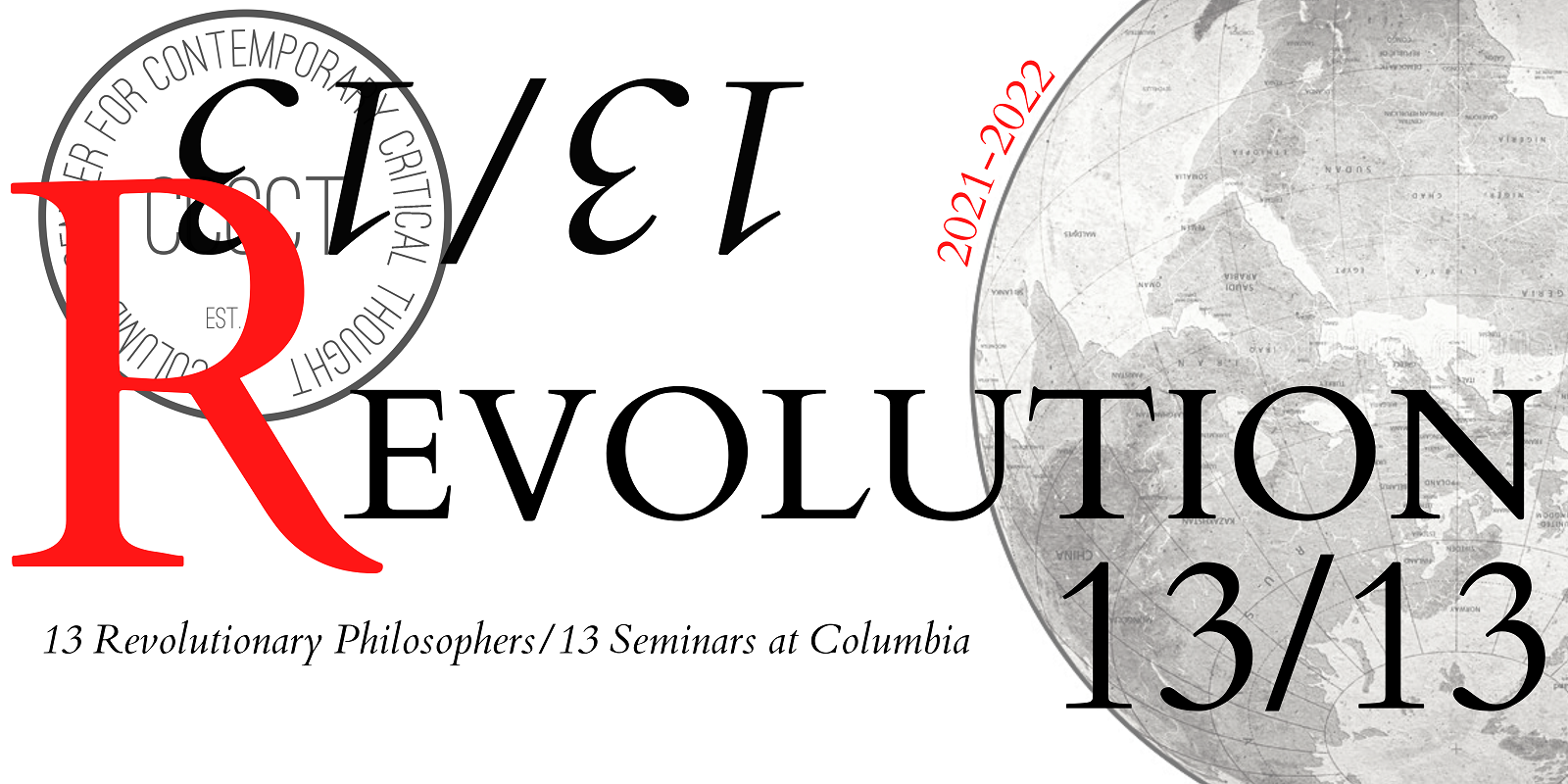Critical Theory: The Podcast
Find the podcast on Soundcloud and Apple Podcasts
Latest Episode:
Episode 5: On Critical Genealogy: An Answer to the Question “What Good Is Genealogy for Praxis?”
In episode 5 of Critical Theory: Bernard E. Harcourt explores the utility of genealogical critique for revolutionary praxis. This presentation serves as a conclusion to this year’s 13/13 seminar that has interrogated the relationship between critical theory and revolutionary practice by examining the written works of worldly, revolutionary philosophers.
This episode focuses precisely on the place where critique can nourish worldly activity—and vice versa. It explores the activist writings of Nietzsche and Foucault in relation to praxis. It locates specifically when, how, and where critical philosophy and worldly activism can work together productively.
“In any case, I hate everything that merely instructs me without augmenting or directly invigorating my activity.”
It is with those words of Goethe, you will recall, that Nietzsche opened his untimely meditations on the value of history. Today, history has been eclipsed by the genealogical method, within critical circles. Foucault’s genealogical approach now dominates historically inflected critique. But not all genealogical work today encourages praxis. Not all genealogies, nor all philosophical debates over genealogy, directly invigorate our activity.
In part because of its proliferation and now ubiquity, the genealogical method has essentially become what history was in the nineteenth century. It is crucial now that we assess the value of genealogical critique for praxis. The proper metric against which to evaluate genealogical writings is whether they contribute to transforming ourselves, others, and society.
Here, Bernard E. Harcourt proposes that we use the term “critical genealogy” to identify those genealogical practices that nourish our activity and thereby advance the ambition of critical philosophy, namely to change the world. It is time, once again, Harcourt argues, that we test whether our historical critiques are productive or demobilizing. It is imperative that we knock on them to determine which are hollow and which are robust—which discourage and which nourish action. It is time, once again, that we do philosophy with a hammer.
The more polished and updated paper can be found on SSRN here: papers.ssrn.com/sol3/papers.cfm?a…stract_id=4147668
Past Episodes:
Episode 1: The New Age of Riots, with Joshua Clover
In the first episode of Critical Theory: The Podcast, Professor Bernard E. Harcourt (Columbia University) and Professor Joshua Clover (UC Davis) discuss Clover’s new book Riot. Strike. Riot. (Verso, 2016), its implications for a critical practice of revolt, and the frontiers of contemporary critical thought. Clover provocatively opens his book: “Riots are coming, they are already here, more are on the way, no one doubts it. They deserve an adequate theory.” This podcast explores that theory and the broader question of the relationship between thought and action. Join us for a stimulating hour on The New Age of Riots.
Episode 2: Weaponizing Life, with Banu Bargu
In episode 2 of Critical Theory: The Podcast, Professor Bernard E. Harcourt sits down with Banu Bargu (UC Santa Cruz) to discuss her book Starve and Immolate: The Politics of Human Weapons (New York: Columbia University Press, 2014) and the weaponization of life in relation to praxis.
Episode 3: The Counterrevolution in Brazil, with Augusto Jobim do Amaral, Fernanda Martins, Antonio Pele, and Jesús Sabariego. Taped in Brazil.
In episode 3 of Critical Theory: The Podcast, Columbia University Professor Bernard E. Harcourt investigates the shockingly high rates of police violence in Brazil, in an effort to understand, in conversation with four brilliant critical theorists in Brazil, how best to comprehend the ongoing state violence. Discussing theories of civil war, of counterrevolution, of necropolitics, biopolitics and biopower, Harcourt and his four guests—Augusto Jobim do Amaral, Fernanda Martins, Antonio Pele, and Jesús Sabariego—engage in a wide-ranging empirical and theoretical examination of the current crisis of police violence in Brazil. Taped in Porto Alegre and Rio in October 2019, this episode offers a stimulating and haunting analysis of contemporary state violence in Brazil today.
Episode 4: George Jackson and Revolutionary Prison Writings with Paul Redd former member of the Short Corridor Collective, Pelican Bay State Prison, California.
In episode 4 of Critical Theory: The Podcast, Bernard E. Harcourt sits down with Paul Redd, who was incarcerated for 46 years in California, 35 of them in solitary confinement, and was released on May 21, 2020, to discuss the influence of prison writings and the experience of the Short Corridor Collective at Pelican Bay State Prison. The members of the Short Corridor read and exchanged the critical works of George Jackson, Assata Shakur, Eldridge Cleaver, Michel Foucault, Bobby Sands, and others, leading to the country’s largest ever prison hunger strike, in 2013, involving more than thirty thousand women and men throughout California prisons who refused to eat, as part of a series of prison hunger strikes that began in July 2011. The hunger strikes and aggressive litigation ultimately led to California’s agreement to end indeterminate solitary confinement based on gang affiliation. Paul Redd participated in organizing the hunger strikes on the Short Corridor, was part of the efforts to end hostilities, and was a signatory to the agreement. He discusses the role of reading Bobby Sands, George Jackson and others with us in preparation for the public seminar, Revolution 7/13, at the Columbia Center for Contemporary Critical Thought.
